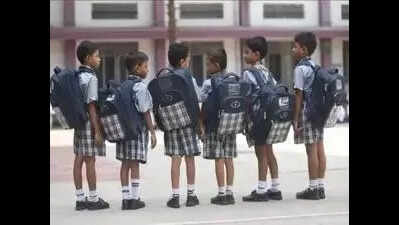Mumbai: Dal rice on Mondays, khichdi on Tuesdays, veg pulao on Wednesdays, followed again by dal rice, soybeans or pulao, and then khichdi to end the week. This is the weekly midday meal menu for 2.7 lakh schoolchildren in Mumbai under the PM Poshan Scheme — formerly the Mid-Day Meal Programme.The meals, often repetitive and lacking in variety, have long been criticised for falling short on nutritional value. Now, a proposal by the BMC to introduce jaggery-based energy bars as a supplement has sparked a fresh wave of concern. While some officials see it as a step towards improving calorie intake — as the bars also contain protein, vitamins, calcium, magnesium and iron, among other things — public health experts warn that it may do more harm than good. The BMC’s tender for the energy bars specifies it has ‘no added sugar’ and uses jaggery instead, but health experts say the distinction is negligible. Dr Abhay Shukla, national co-convenor, Jan Swasth Abhiyaan, said jaggery is 90% sugar. He compared the proposed energy bar to a peanut-based paste already used in anganwadis to tackle severe malnutrition, but said such supplements are stopgap solutions and cannot replace the wholesome nutrition of a freshly cooked meal.Rising sugar consumption among children is a national concern. A letter issued on March 6 by the National Commission for Protection of Child Rights noted that sugar contributes to 13% of daily caloric intake for children aged 4 to 10, and 15% for those aged 11 to 18 — more than three times the recommended limit of 5%. Easy access to sugary snacks and drinks is a major factor. It highlighted a worrying increase in type 2 diabetes among children, making the introduction of yet another sweetened food item into school meals work against broader public health goals. A senior BMC official said the tender for the energy bars has not yet been awarded. Doctors are unconvinced by the idea of supplementing children’s diets with jaggery-sweetened bars. Dr Akanksha Parikh, a paediatric endocrinologist, said that while jaggery does contain trace amounts of micronutrients, the quantities are too small to have any meaningful health benefit and does more harm instead. “Dates could have been a better alternative, it offers natural sugar with fiber.”Dr Shukla questioned if research was conducted by authorities to demonstrate that these bars are more effective than a fresh, balanced meal. Predominant evidence, he said, suggests that excess sugar intake impairs metabolism and increases the risk of diabetes. Developmental economist Ritika Khera, with IIT Delhi, whose work has focused on interventions like mid-day meals, ICDS, and other govt entitlements says the effectiveness of energy bars depends on factors such as existing sugar consumption among children, the nutritional value of the bars, and whether quality can be maintained through centralised production. On the ground, teachers are concerned. Lekha, a government school teacher in Mumbai, says that students already consume a sugar-heavy diet, filled with soft drinks, biscuits, and cakes, mostly because these are cheap and widely available.Khera argues that research and past data has shown providing eggs is an affordable and nutrient-rich solution. Such efforts have faced a setback in the recent past. In Nov 2023, the state govt announced the inclusion of eggs in the midday meal programme to address nutritional gaps. However, right-wing protests led to the withdrawal of government funding by Jan 2025. Nonetheless, the state govt announced an additional Rs 100 crore to support the distribution of eggs and other high-protein items, but it remains unutilised. (With inputs from Eshan Kalyanikar)











